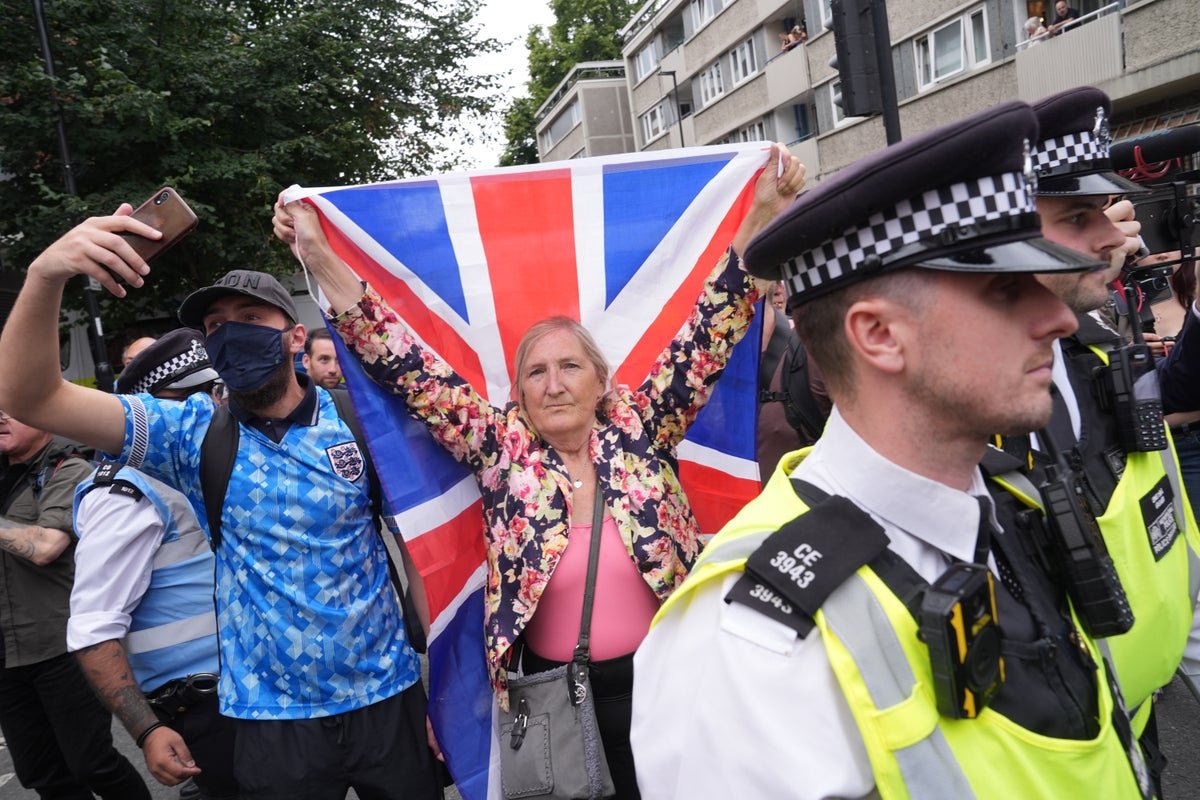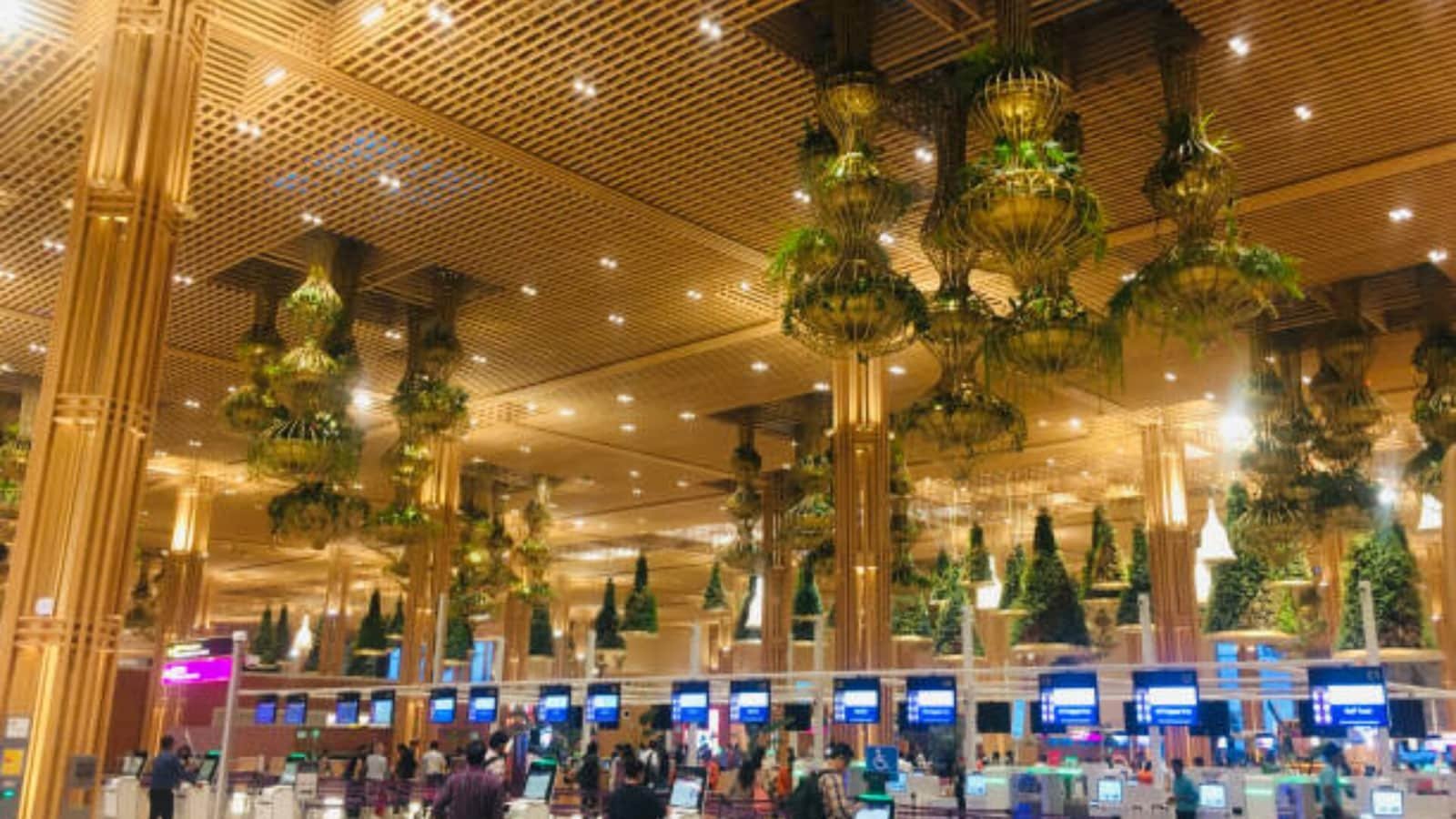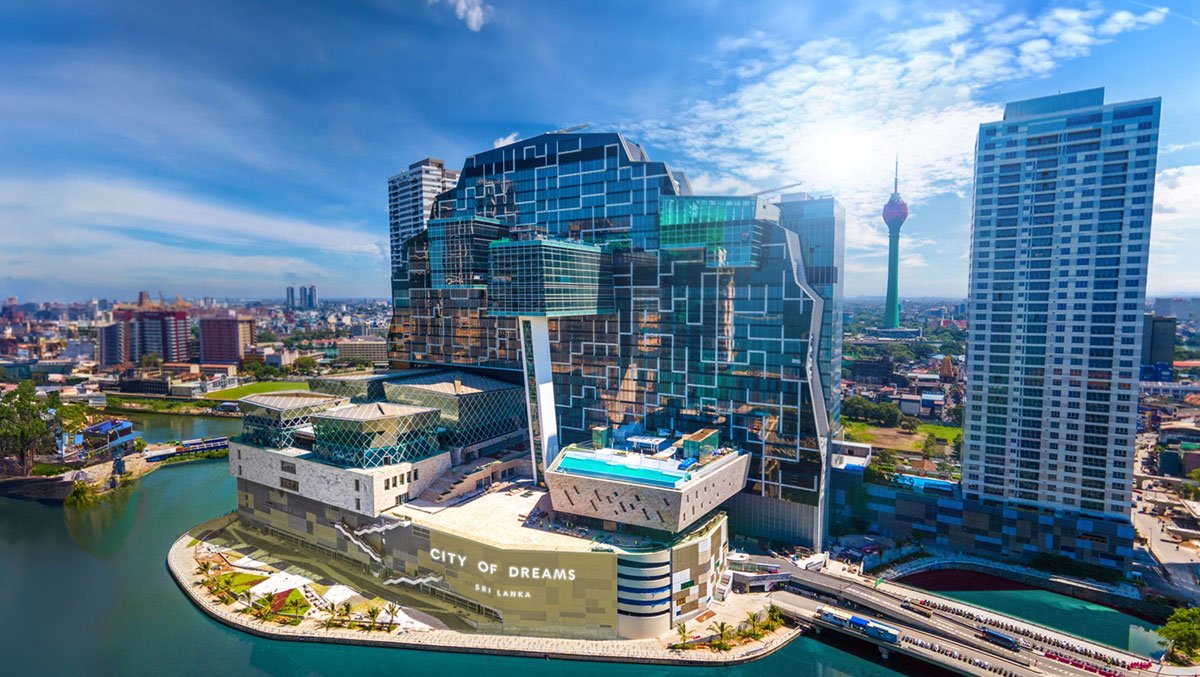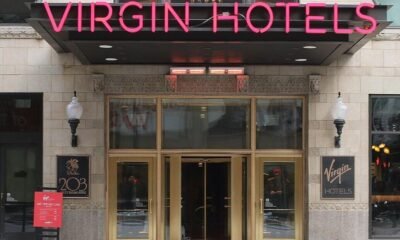Hotels & Accommodations
DLF, Lodha and Indian Hotels Company secure top spot in Hurun India Top 150 Real Estate Companies

DLF
has retained the title of the country’s most valuable real estate company with a value of ₹2 lakh crore, according to the Grohe-Hurun India Top 150 Real Estate Companies of 2025. Lodha Developers and
Indian Hotels Company
(Also known as The Taj Group of Hotels) secured the second and third spot on the list, with a valuation at ₹1.4 lakh crore and ₹1.1 lakh crore, respectively.
Released on Thursday, the cumulative value of the 150 companies on the list grew by just 14%, compared to 70% last year, the lowest growth in the history of the list. The combined value of these companies however, stood at ₹16 lakh crore, up by ₹1.9 lakh crore from last year. This was higher than the GDP of Kuwait and the combined GDP of Jordan and Bulgaria.
“Despite early-year turbulence due to global conflicts and input cost pressures, the industry added ₹1.4 lakh crore in value led by a sharp post-April recovery. DLF,
Prestige
, and Anant Raj posted over 20% rebounds in just 2 months,” said
Anas Rahman Junaid
, Founder And Chief Researcher, Hurun India, in a statement.
Of the 63 new entrants this year,
Ritesh Agarwal
-led Oyo found entry into the list for the first time, and that too becoming a part of the top 15 directly.
Meanwhile, Adani Realty reclaimed the top spot the most valuable unlisted real estate company. Over 51% of these 150 companies saw their value increase compared to 86% last year.
Mumbai topped the list with 42 companies, followed by Bengaluru at a distant 23, New Delhi with 16.
The youngest company to have debuted on the list was Deepak Parekh-led Schloss Bangalore, which was valued at ₹13,600 crore. The company was founded just 6 years ago.
The list has only four women-led companies. These include
Pavitra Shankar
of
Brigade Enterprises
(₹27,200 crore),
Priya Paul
of Apeejay Surrendra Park Hotels (₹3,600 crore),
Jyotsna Suri
of The Lalit (₹3,000 crore), and Meenakshi Ramji of Sowparnika (₹2,800 crore).
Hotels & Accommodations
Rival groups clash outside London asylum hotel as police issue arrest warnings

Rival protest groups have clashed outside a London asylum hotel as police issued an urgent arrest warning.
Several demonstrators were detained by officers on Saturday (2 August) after clashing with rival groups at a protest against the use of the Thistle City Barbican Hotel in Islington, north London, to accommodate asylum seekers.
People believed to be migrants watched the protests from the hotel’s windows, with some waving and blowing kisses as demonstrators chanted and banged drums in the street below.
A man wearing an England football shirt was detained by police after a confrontation with officers.
A group of anti-fascist protesters blocked a junction outside the hotel.
Officers then pushed into the crowd to detain several people, dragging them out by their arms and legs.
The Metropolitan Police said the protest against the use of the Islington hotel was organised by residents under the banner “Thistle Barbican needs to go – locals say no”.
A counterprotest, organised by Stand Up To Racism and supported by former Labour leader Jeremy Corbyn, as well as other groups including Finsbury Park Mosque and Islington Labour Party, took place.
Police said the anti-asylum hotel protest had been “endorsed by groups from outside the local community, which is likely to increase the number of people attending”.
Online groups that have voiced support for the protest include “Patriots of Britain” and “Together for the Children”.
The Metropolitan Police said plans were in place to “respond to any protest activity in the vicinity of other hotels in London being used to accommodate asylum seekers”.
A counterprotester outside the Thistle City Barbican Hotel said he wants migrants to “feel safe” in the UK.
Student Pat Prendergast, 21, said: “I want people to feel safe. I think the [rival protesters] over there are making people feel unsafe.
“I want to stand up in solidarity and say that, you know, we want people here. We want migrants. We want asylum seekers.”
A noticeably smaller group of protesters waved union flags and held banners outside the hotel. “Get these scum off our streets”, one man chanted in the direction of the hotel.
A large group of masked protesters dressed in black, chanting “we are anti-fascist”, appeared from a side street and marched towards the rival group outside the hotel.
There were brief clashes before police rushed in to separate the two groups.
Chief Superintendent Clair Haynes, in charge of the force’s policing operation, said: “We have been in discussions with the organisers of both protests in recent days, building on the ongoing engagement between local officers, community groups and partners.
“We understand that there are strongly held views on all sides.
“Our officers will police without fear or favour, ensuring those exercising their right to protest can do so safely, but intervening at the first sign of actions that cross the line into criminality.
“We have used our powers under the Public Order Act to put conditions in place to prevent serious disorder and to minimise serious disruption to the lives of people and businesses in the local community.
“Those conditions identify two distinct protest areas where the protests must take place, meaning the groups will be separated but still within sight and sound of each other.”
Elsewhere across the UK, there were also posts online advertising a “For our children, for our future” protest in Newcastle outside The New Bridge Hotel.
A “Stop the far right and fascists in Newcastle” counterprotest was organised by Stand Up To Racism at the nearby Laing Art Gallery.
Northumbria Police have been approached for comment.
Meanwhile, about 100 people attended a protest outside the Stanwell Hotel in Spelthorne, Surrey, on Friday evening, during which a packet of lit firelighters was thrown at police, Surrey Police said.
A man was arrested on suspicion of attempted arson and inquiries are ongoing to trace another suspect, the force said.
Officers also arrested a man on suspicion of conspiracy to commit violent disorder and aggravated trespass following a protest at the same location on Thursday evening.
Hotels & Accommodations
Japanese vlogger compares Bengaluru airport to ‘5-star hotel’: ‘Fake or natural green?’

A Japanese content creator has gone viral after posting a video of his visit to Kempegowda International Airport in Bengaluru, describing it as “one of the most beautiful airports in the world.” The video was shared by a reel creator named Kaito, as per his Instagram bio. In the clip, he can be seen walking through the terminal, clearly impressed by its architecture, greenery, and overall atmosphere.
‘It Looks Like A 5-Star Hotel’
“This is Bengaluru International Airport. This architecture, I have never seen any airport like this before,” he says in the video. “Guys, this is inside of Bengaluru International Airport. I don’t know the official name of this airport. But there are so many trees hanging from the ceiling.”
Kaito compared the airport’s interiors to those of a luxury hotel. “It looks like a 5-star hotel or something. And it smells really really good inside. It smells like… like Aesop, if you know, the cosmetic brand.”
He also pointed out some of the unique features, saying, “Actually, it’s not a tree, it’s like a bell. A huge bell covered with trees hanging from the ceiling. And there is also a fountain there. That’s insane. There’s like an indoor waterfall here.”
‘Is This Fake Or Natural Green?’
While admiring the design, Kaito compared Bengaluru’s airport to some of the world’s best, including Singapore’s Changi Airport and Doha’s Hamad International Airport.
“There is like a garden in Changi Airport, Singapore, and Hamad International Airport, Doha, Qatar, but this is like another level, because the whole airport is covered with green. Is this fake or natural green?” he asked.
He added, “There is a garden at some airports, but this is not garden, like whole airport is like garden. Oh my gosh, is this real or not? Oh I think it’s real. All plants here are real, but there is no like insect or something.”
Pressed for time, Kaito wrapped up the video saying, “This is a shopping area, but I don’t have much time today. My boarding is already started, so I have to hurry. I don’t have much time to enjoy like eating or shopping.”
The reel, captioned “One of the most beautiful airport in the world”, has received widespread praise online.
Internet Reacts
One user commented, “Yes, it’s one of India’s best airports. We’re proud!”
Another said, “This feels like a garden you can fly from!”
A third added, “South India’s pride, truly stunning.”
Someone else wrote, “Our airports are changing the way the world sees India.”
Hotels & Accommodations
City of Dreams casino and luxury hotels aim to up Sri Lanka’s tourism game

ECONOMYNEXT – Sri Lanka, the world and US and the world is suddenly facing a triple whammy from the nationalist and interventionist actions of President Donald Trump that as well as the effects of the Fed’s inflationism via the excess liquidity driven single policy rate (ample reserves regime).
The Dow Jones index tumbled 1.23-pct (542 points) on Friday as the Trump tariffs went into effect, albeit at a lower than initially expected rate.
The Euro Stoxx 50 Index fell 154 points or 2.9 percent, with the FTSE 100 falling 0.7 percent, and the Nikkei falling 270 points, or 0.66 percent.
Regime Uncertainty
Trump’s actions where the government changes the expected rule of the game is called regime uncertainty.
Regime uncertainty which is an undermining of established rules governing, reduces the confidence of doing business and creates uncertainty and distrust of the system.
The so-called New Deal, where a number of state interventions were made by the Democratic government by mostly Keynesians killed investment and the first recovery from the Great Depression by making the investment environment uncertain.
Among the interventions was the devaluation of the US dollar and banning gold for both private holding and contract writing which led to savers being expropriated.
Sri Lanka has done extremely well to reduce the Trump tariff to 20 percent and ward off the worst effects.
In Sri Lanka President Anura Kumara Dissanayake has been acting carefully not making any sudden decisions giving continuity and policy stability except for one or two incidents.
READ MORE : Regime Uncertainty: Why the Great Depression Lasted So Long and Why Prosperity Resumed after the War
Private citizens and businesses are un-armed and easily spooked, and it matters little to them whether pre-existing rules are de jure or de facto.
Sri Lanka Customs for example has ordered the re-export several hundred cars after suddenly deciding to implement a rule they had been ignoring for years and has signalled as permissible procedure in one intervention.
The Trade Ministry imposed price controls and created problems, but largely Sri Lanka has been a steady ship under the current administration allowing economic agents to work within a known system.
Resisting calls to ‘do something’ and intervene is difficult to resist.
The Disappearing Jobs
The second whammy on Friday was the revised jobs report, showing that new jobs created in May and June (after Trump’s taxes in April) was much, much lower than previously reported.
Predictably Trump killed the messenger by sacking the Erika McEntarfer, the commissioner of the Bureau of Labour Satistics claiming that jobs data “are being produced by Biden appointee”.
“We need accurate Jobs Numbers,” Trump wrote on his Truthsocial.com platform. “She will be replaced with someone much more competent and qualified. Important numbers like this must be fair and accurate, they can’t be manipulated for political purposes.”
https://truthsocial.com/@realDonaldTrump/posts/114954846612623858″
McEntarfer said there were only 73,000 Jobs added (a shock!) but, more importantly, that a major mistake was made by them, 258,000 Jobs downward, in the prior two months,” Trump added.
“Similar things happened in the first part of the year, always to the negative.”
It is normal for jobs to fall when the Fed ends an artificial boom of its own creation, which creates jobs that would not have been there had it been running a more prudent policy.
The Fed had been running a highly inflationist framework called the ample reserves regime, with trillions of excess liquidity, which was started by Bernanke to push up asset prices after the collapse of the housing bubble.
Macro-economists in the Fed, (which then infected the ECB) later ‘normalized’ the abundant reserve regime, adding fuel to the crypto bubble, stocks and also emerging market debt. As the single policy rate hit those countries, they are defaulting.
War Drums Whammy
The third whammy on the triple witching Friday was Trump deploying nuclear subs closer to Russia, after comments by ex-Russian President Dmitry Medvedev.
After years of being what is generally called a ‘Putin Lover’ and peddling his false narrative that Russia attacked Ukraine due to its wish join NATO, Trump has now suddenly fallen out with his friend during visits to Russia as a private investor.
Ukraine gave up nuclear arms and no one was interested in joining NATO until Putin attacked Georgia after cutting its debt with oil profits from the Fed housing bubble and strengthening its economy.
Instead of ignoring Medvedev Trump has now deployed nuclear subs.
Putin is a cool customer who has run one of the largest and most resource rich, and resourceful countries for decades, killing off the democratic opposition and tightening his grip on the system.
Trump is the leader of a democratic nation, who has term limits, a free press and a voting population who are used to kicking out Presidents like empty Coke cans.
While Trump has an advantage in extreme socialist policies of the Democrats and a Fed which is creating inflation and unhappiness after dumping its scarce reserve regime for the single policy rate, the business community which funded him is far from happy.
Is there a ticking bomb in the US?
After years of stimulus advocated by macro-economists, US government finances are in a bad state.
Russia avoided the stimulus and had very strong government finances until the start of the war. However, now the situation is different.
Though the Ruble was successfully floated under a 4 percent inflation target the Bank of Russia has been unable to fully bring down inflation. Russia is also trying to fight war with mercenaries, no conscription and the economy has started to slow down.
The US fiscal bomb, if it goes off however can have devastating consequences, more than other countries, since the entire world is linked to the country.
RELATED : Sri Lanka could get hit from a disorderly US tumble: Bellwether
Due to pressure from the macroeconomists in the Fed and Treasury and mistaken criticism of the Asian savings glut, countries like China and others are no longer firmly pegged to the US dollar and buying Treasuries as they did from 1950 to around 2005.
After 2014 when China and others shifted to more floating regimes, reserve collection has basically stopped. That is an own goal of the macroeconomists who shouted from the rooftop when long term rates did not go up when the Fed hiked rates shortly before the housing bubble broke.
When money was printed to fire the housing bubble by the Fed large volumes went to housing. Now banks are scared of housing and there are actual housing shortages in many countries. Instead money went to government debt for macro-economic policy and stimulus.
Government balance sheets are remarkably bad, compared to the end of the housing bubble and the Great Depression.
In the deflationary late 1990s the US ran budget surpluses for the first time since the collapse of the gold standard. Fed fired the Roaring 20s bubble in the 1920s as Treasury ran budget surpluses.
Macro-economists have hit own goals all over.
The Trump tariffs have brought more revenues to the government, which is good, but it must have come as lost profits (and new jobs it seems) in company balance sheets.
Trump’s expectations of greater investments – the US was a top recipient of FDI and bond investments in the past which created the trade deficit in the first place – due to its stable policies and practices like grandfathering, when rules were changed.
The biggest problem there seems to be little knowledge of how to fix the system in the US in both major parties.
US downturns tend to have ripple effects across the world and Sri Lanka has to be vigilant and not think that this country can ‘spend its way out of trouble’ as the US did from 2009 cutting rates when private credit is strong or going on capex spree. (Colombo/Aug02/2025)
-

 Brand Stories2 weeks ago
Brand Stories2 weeks agoBloom Hotels: A Modern Vision of Hospitality Redefining Travel
-

 Brand Stories1 week ago
Brand Stories1 week agoCheQin.ai sets a new standard for hotel booking with its AI capabilities: empowering travellers to bargain, choose the best, and book with clarity.
-

 Destinations & Things To Do2 weeks ago
Destinations & Things To Do2 weeks agoUntouched Destinations: Stunning Hidden Gems You Must Visit
-

 Destinations & Things To Do1 week ago
Destinations & Things To Do1 week agoThis Hidden Beach in India Glows at Night-But Only in One Secret Season
-

 AI in Travel2 weeks ago
AI in Travel2 weeks agoAI Travel Revolution: Must-Have Guide to the Best Experience
-

 Brand Stories4 weeks ago
Brand Stories4 weeks agoVoice AI Startup ElevenLabs Plans to Add Hubs Around the World
-

 Brand Stories3 weeks ago
Brand Stories3 weeks agoHow Elon Musk’s rogue Grok chatbot became a cautionary AI tale
-

 Asia Travel Pulse4 weeks ago
Asia Travel Pulse4 weeks agoLooking For Adventure In Asia? Here Are 7 Epic Destinations You Need To Experience At Least Once – Zee News
-

 AI in Travel4 weeks ago
AI in Travel4 weeks ago‘Will AI take my job?’ A trip to a Beijing fortune-telling bar to see what lies ahead | China
-

 Brand Stories4 weeks ago
Brand Stories4 weeks agoChatGPT — the last of the great romantics













You must be logged in to post a comment Login